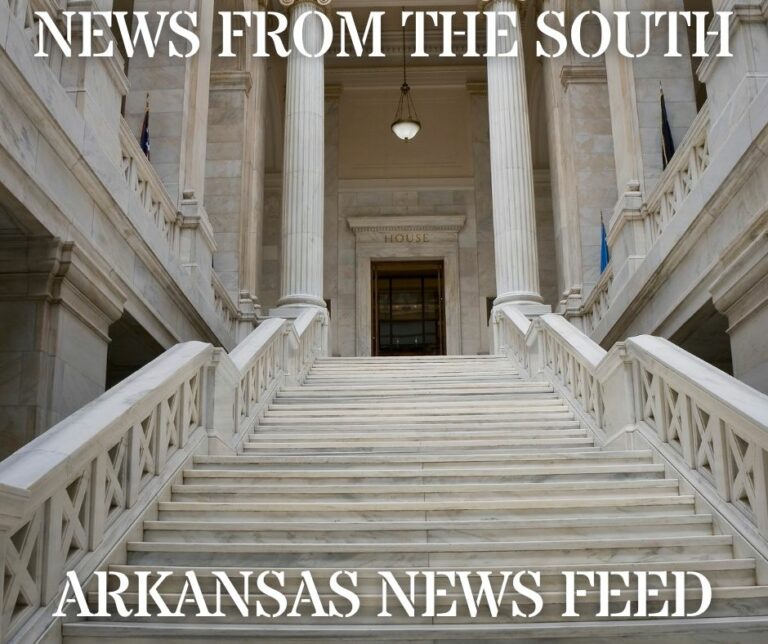News from the South - Texas News Feed
Aburi Oshi Sushi, Austin music scene, Dia de los Muertos: Good Day Austin Round-Up | FOX 7 Austin
SUMMARY: In the latest episode of Good Day Austin, the hosts recap highlights from the morning show. They discuss record-breaking rainfall and flash floods in New Mexico and the first snow of the season in Colorado. A Halloween-themed cake challenge unfolds, with Libby and Adalie creating intricate cakes. The segment also features a new sushi concept, A Buri Oshi, which offers flame-seared sushi. Chef Kevin shares insights on his dessert company, while notable events like the Austin City Limits anniversary concert are celebrated. The hosts reflect on F1’s recent return to Austin along with community events like Viva La Vida, showcasing local culture and entertainment.
There’s a new sushi spot in town, some iconic Austin music scene institutions are in the news and a long-running Dia de los Muertos celebration returns. The Good Day Austin team talks about those segments and more.
FOX7Austin brings you breaking news, weather, and local stories out of Central #Texas as well as fun segments from Good Day Austin, the best from our video vault archives, and exclusive shows like the Good Day Austin Round-Up and CrimeWatch.
News from the South - Texas News Feed
Trump targets mail-in ballots, 'seriously controversial' voting machines
SUMMARY: President Trump announced plans to sign an executive order ending mail-in ballots and “controversial” voting machines before the 2026 midterms. On Truth Social, he criticized mail voting for alleged widespread fraud, calling voting machines expensive and inaccurate compared to paper ballots. Trump claimed Democrats oppose this effort because they rely on cheating via mail ballots, which he dubbed a “hoax.” His claims of mail-in voter fraud remain unproven, despite legal setbacks blocking parts of his previous election-related orders. Trump emphasized federal authority over states in elections, pledging to fight for election integrity and honest results.
The post Trump targets mail-in ballots, 'seriously controversial' voting machines appeared first on www.kxan.com
News from the South - Texas News Feed
AUS negotiating with airlines for space in new terminal, Southwest wants to be 'anchor tenant'
SUMMARY: Negotiations between Austin-Bergstrom International Airport (AUS) and airlines are ongoing to update the use and lease agreement, effective Jan. 1, 2025, guiding operations through at least 2035. This agreement is crucial as AUS plans a new terminal with 20+ gates, doubling capacity by 2030. Southwest aims to be the “anchor tenant” of the new concourse, proposing to expand to 18 gates, supporting significant passenger growth and economic impact. Delta also supports the agreement, seeing continued growth potential. Finalizing this partnership is vital for funding the Airport Expansion and Development Program and ensuring smooth future operations at AUS.
The post AUS negotiating with airlines for space in new terminal, Southwest wants to be 'anchor tenant' appeared first on www.kxan.com
News from the South - Texas News Feed
Texas colleges lack state guidance on in-state tuition order
“Confusion reigns as Texas colleges scramble to comply with ban on in-state tuition for undocumented students” was first published by The Texas Tribune, a nonprofit, nonpartisan media organization that informs Texans — and engages with them — about public policy, politics, government and statewide issues.
Sign up for The Brief, The Texas Tribune’s daily newsletter that keeps readers up to speed on the most essential Texas news.
Katerin felt her whole body flush when she opened her fall tuition bill from the University of Houston: It had nearly doubled to $7,900.
The 24-year-old has lived in Texas since her parents brought her to the U.S. from Mexico when she was 2. Thanks to the 2001 Texas Dream Act, she’s always qualified for in-state tuition as she worked toward a master’s degree in social work.
A federal court ruling swiftly gutted the law in June, ending the benefit for thousands of undocumented students. But Katerin is in the country legally, as a recipient of the federal Deferred Action for Childhood Arrivals, or DACA, program, which protects certain immigrants from deportation and allows them to work legally.
Students like Katerin, who asked that her last name not be used over concerns about a relative’s undocumented status, should still qualify for in-state tuition, attorneys for Texas said in a court filing. But advocates say some Texas universities are misinterpreting the court ruling, leaving students like Katerin with confusing messages and sky-high tuition bills just as classes are about to begin.
Advocates call it an urgent and widespread problem fueled by the lack of state guidance on how to implement the ruling. They worry hundreds of students are being sent incorrect tuition bills and will not have the time, guidance, resources or support to challenge them.
“As someone who was undocumented, I know there are some students who are going to be like, ‘I’m not even going to push this,’” said Julieta Garibay, co-founder of United We Dream, a national immigrant advocacy group. “I’m watching TV and there are people who are literally getting picked up in the middle of the street and getting deported to some other country, not their country of origin. Why am I going to make noise when something could happen to me?”
Two weeks after the court’s ruling, the Texas Higher Education Coordinating Board instructed colleges to identify and reclassify students who are not lawfully present in the country as nonresidents for the fall semester. It offered no guidance on how institutions should determine lawful presence or what documentation to accept.
A spokesperson for the board did not answer questions from The Texas Tribune.
Advocates say without clear guidance from the state, students’ ability to continue paying in-state tuition rates can hinge on where they attend college, not whether they qualify.
“What we’ve seen is a chaotic, haphazard and inconsistent implementation across the state with grave emotional consequences for students … but more importantly, with dire consequences,” said Barbara Hines, who helped write the Texas Dream Act 24 years ago and founded the immigration clinic at the University of Texas School of Law.
/https://static.texastribune.org/media/files/c9e57f59a429b5ccbb4cbd76c36b846d/0817%20In%20State%20Tuition%20DACA%20HM%2006.jpg)
Hines said the coordinating board should be doing more to help schools implement the ruling. At a minimum, she said, the agency should issue clear guidance that aligns with the Texas Department of Public Safety’s categories of lawful presence, lists acceptable proof documents, and sets reasonable timelines for schools to process students’ paperwork. She also urged the agency to ensure that universities have trained staff to handle residency reclassifications and communicate accurate information to students.
How schools are responding to the change
To qualify for in-state tuition under the 2001 Texas Dream Act, students were required to sign an affidavit stating that they would apply for permanent U.S. residency as soon as they were eligible. In 2024, 18,593 Texas college students signed that affidavit.
The Tribune contacted the nine public colleges with the largest number of students who signed that affidavit to learn how they are implementing the court’s ruling. Those schools were Dallas College, Houston Community College, Lone Star College, the University of Houston, Texas A&M University, the University of Texas at Austin, University of Texas at Dallas, the University of Texas at Arlington, and the University of Texas Rio Grande Valley.
Texas A&M was the only school that said it will accept the same documents the Texas Department of Public Safety uses to establish lawful presence for a Texas Real ID, which includes an employment authorization document for DACA recipients. The university said it will accept documents until Sept. 10, the fall census date when universities finalize residency status and enrollment counts.
A coalition of immigrant rights and legal advocacy groups singled out UT-Austin for creating confusion about the ruling in communications with students. UT-Austin did not respond to multiple requests for comment.
Members of the coalition shared with the Tribune messages UT-Austin sent students saying they had until July 24 to submit documents. One message incorrectly stated, “due to a new Texas law effective June 2025, we now require proof of lawful immigration status.” This was wrong in two ways: there was no new state law, only a federal court ruling, and the message substituted “lawful immigration status” for “lawful presence,” the term used in the court’s ruling. That narrower category excludes people with DACA, temporary protected status and pending permanent U.S. residency applications.
Garibay said UT-Austin is also directing students to a residency questionnaire that omits some current lawful presence categories. She said students in those groups are bumped out of the questionnaire and told to contact the enrollment office, where many get unclear or no answers.
Garibay and other advocates told the Tribune they have accompanied some students to the enrollment office, where they were advised to pay the higher out-of-state tuition rate and seek reimbursement later, despite the process taking up to four weeks.
The advocates called the advice unreasonable given the other time-sensitive financial decisions students must make at the beginning of the school year, such as whether to sign a lease for an apartment. Garibay also noted that even if UT-Austin students pay tuition in installments, the university requires students to pay the full amount by October.
UT-Austin is not the only university where the coalition says students have encountered problems. The coalition said many colleges lack dedicated, trained staff to assist students with questions about the in-state tuition changes. Some have demanded students provide original documents or mistakenly told some noncitizens they could not enroll.
“For many students, that means they have no passport or permanent resident card or other documents, and they’re without them for weeks,” said Barbara Hines, former clinical professor of law and founder of the immigration clinic at the University of Texas School of Law.
The coalition declined to name those schools, citing their responsiveness to the group’s feedback and corrective actions.
/https://static.texastribune.org/media/files/1fbdf1c86a00b97a15ae7bb37e387804/0817%20In%20State%20Tuition%20DACA%20HM%2008.jpg)
Of the schools the Tribune contacted, Houston Community College and UT-Arlington did not respond. Dallas College said it could not respond to questions by the Tribune’s deadline. Lone Star College declined to answer questions. UT-Rio Grande Valley declined to answer questions, but reiterated a June statement that it aims to minimize disruption to students while following the law. UT-Dallas referred the Tribune to a website that on Monday noted staff were reviewing residency documents submitted between July 16-31.
Hines, who helped write the Texas Dream Act 24 years ago, said the agency should have done more to help schools implement the ruling. She said it should have allowed them to grandfather in students who were relying on the Texas Dream Act to graduate from college. Alternatively, she said, the coordinating board could have delayed implementation until 2026 to give schools time to create orderly procedures and students time to understand the requirements.
Texas House Democrats made a similar request in a letter earlier this summer, urging the coordinating board to create a temporary tuition category so affected students could continue paying the in-state tuition rate this fall. Commissioner Wynn Rosser rejected the idea, saying the agency did not have the authority to create new categories or to contradict the federal court order.
Kristin Etter, director of policy and legal services at the Texas Immigration Law Council, thinks students could challenge the increases under a state law that bars universities from raising tuition after they have registered for classes. She said it is unclear whether it applies to residency reclassifications, though some schools appear to be interpreting that it does not.
Fighting to prove she still qualified
Katerin is one of six children and entered the DACA program when she was 16.
She has never received financial aid or taken out loans, she said, instead paying for her education by working full-time at a nonprofit child placing agency that licenses foster homes and conducts monthly check-ins on the well-being of foster children. She earned an associate degree from Houston Community College, a bachelor’s degree from the University of Houston-Downtown, and was admitted to UH’s Graduate College of Social Work last year. Her long-term goal is to become a social work professor.
On July 22, UH emailed Katerin saying it had changed her status to nonresident because of the ruling. UH gave her until Aug. 8 to prove lawful presence. The message listed documents she could submit as evidence, including a work authorization card issued to DACA recipients. But didn’t explicitly say DACA recipients still qualified for in-state tuition.
The university’s online student portal created confusion, too. Her emails to the registrar’s office went unanswered. When she called, she was told to wait more than a week to see if she qualified for in-state tuition.
DACA students don’t qualify for federal aid, such as the Pell Grants that go to families making less than $50,000 a year.
Frustrated by the lack of progress, Katerin reached out to one of her professors, who connected her with an immigrant rights group. With their guidance, she resubmitted documents showing she is a DACA recipient, along with a new Texas Dream Act affidavit the coordinating board had revised. On July 31, UH restored her in-state tuition, reducing her bill to $4,349.32.
“I feel like if it wasn’t for me moving, and if it wasn’t for me speaking up, the university, they wouldn’t care,” Katerin said.
In a statement, the University of Houston said it is complying with the court ruling, but did not answer questions about how the changes affect DACA recipients or how it is preventing misclassifications.
/https://static.texastribune.org/media/files/d649bf32a23aa597523c633aac81286b/0817%20In%20State%20Tuition%20DACA%20HM%2016.jpg)
She expects to graduate in the spring and has saved enough money in case DACA recipients lose in-state tuition eligibility before then, but she believes many students in her situation will be forced to take on debt or drop out if it does. The experience, she said, eroded the pride she once felt in being a UH cougar.
“Now, I’m like, ‘let’s get through it. Let’s graduate already,’” she said.
The Texas Tribune partners with Open Campus on higher education coverage.
Disclosure: Houston Community College, JLone Star College, Texas A&M University, University of Houston, University of Texas – Arlington, University of Texas – Dallas, University of Texas – Rio Grande Valley and University of Texas at Austin have been financial supporters of The Texas Tribune, a nonprofit, nonpartisan news organization that is funded in part by donations from members, foundations and corporate sponsors. Financial supporters play no role in the Tribune’s journalism. Find a complete list of them here.
More all-star speakers confirmed for The Texas Tribune Festival, Nov. 13–15! This year’s lineup just got even more exciting with the addition of State Rep. Caroline Fairly, R-Amarillo; former United States Attorney General Eric Holder; Abby Phillip, anchor of “CNN NewsNight”; Aaron Reitz, 2026 Republican candidate for Texas Attorney General; and State Rep. James Talarico, D-Austin. Get your tickets today!
TribFest 2025 is presented by JPMorganChase.
This article originally appeared in The Texas Tribune at https://www.texastribune.org/2025/08/19/texas-colleges-undocumented-immigrants-tuition-ruling/.
The Texas Tribune is a member-supported, nonpartisan newsroom informing and engaging Texans on state politics and policy. Learn more at texastribune.org.
The post Texas colleges lack state guidance on in-state tuition order appeared first on feeds.texastribune.org
Note: The following A.I. based commentary is not part of the original article, reproduced above, but is offered in the hopes that it will promote greater media literacy and critical thinking, by making any potential bias more visible to the reader –Staff Editor.
Political Bias Rating: Center-Left
This article focuses on the challenges faced by undocumented and DACA students in Texas regarding in-state tuition eligibility following a federal court ruling. It highlights the impacts on students, the shortcomings of state guidance, and the responses from universities, emphasizing the struggles of immigrant communities and advocates’ concerns. The tone is sympathetic to immigrant rights and critical of bureaucratic inefficiencies, aligning with center-left perspectives that support immigrant protections and educational access while maintaining a factual and balanced presentation without overt partisanship.
-
News from the South - Tennessee News Feed4 days ago
GRAPHIC VIDEO WARNING: Man shot several times at point-blank range outside Memphis convenience store
-
News from the South - Texas News Feed4 days ago
Kratom poisoning calls climb in Texas
-
News from the South - Texas News Feed2 days ago
New Texas laws go into effect as school year starts
-
News from the South - Florida News Feed2 days ago
Floridians lose tens of millions to romance scams
-
News from the South - Kentucky News Feed4 days ago
Unsealed warrant reveals IRS claims of millions in unreported sales at Central Kentucky restaurants
-
Our Mississippi Home7 days ago
Pride of Mississippi Marching Band to Kick Off Season with Free Concert
-
News from the South - Arkansas News Feed6 days ago
Idaho is losing OB-GYNs. Doctors who remain are trying to shoulder the extra burdens.
-
News from the South - Arkansas News Feed7 days ago
Look inside the newly-renovated Greer Lingle Middle School in Rogers













































